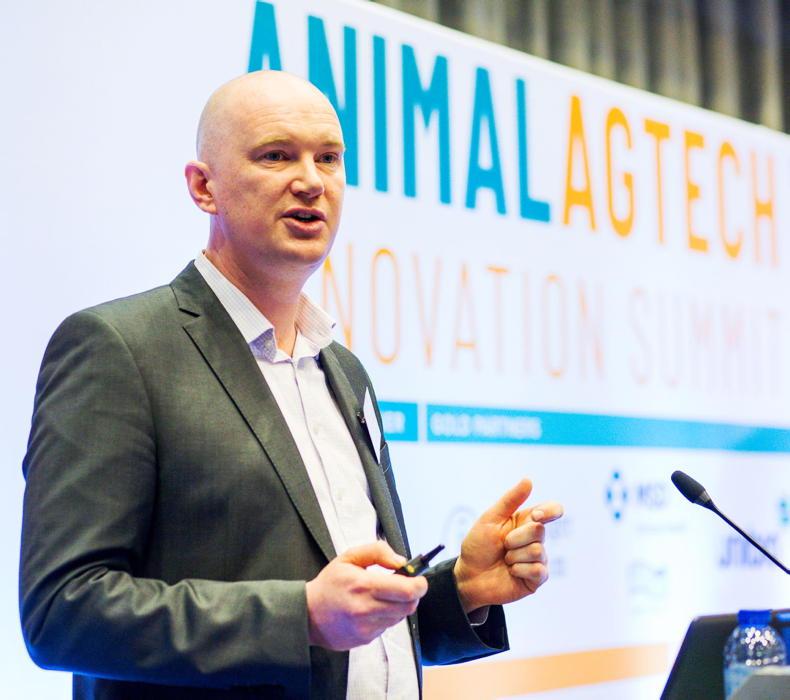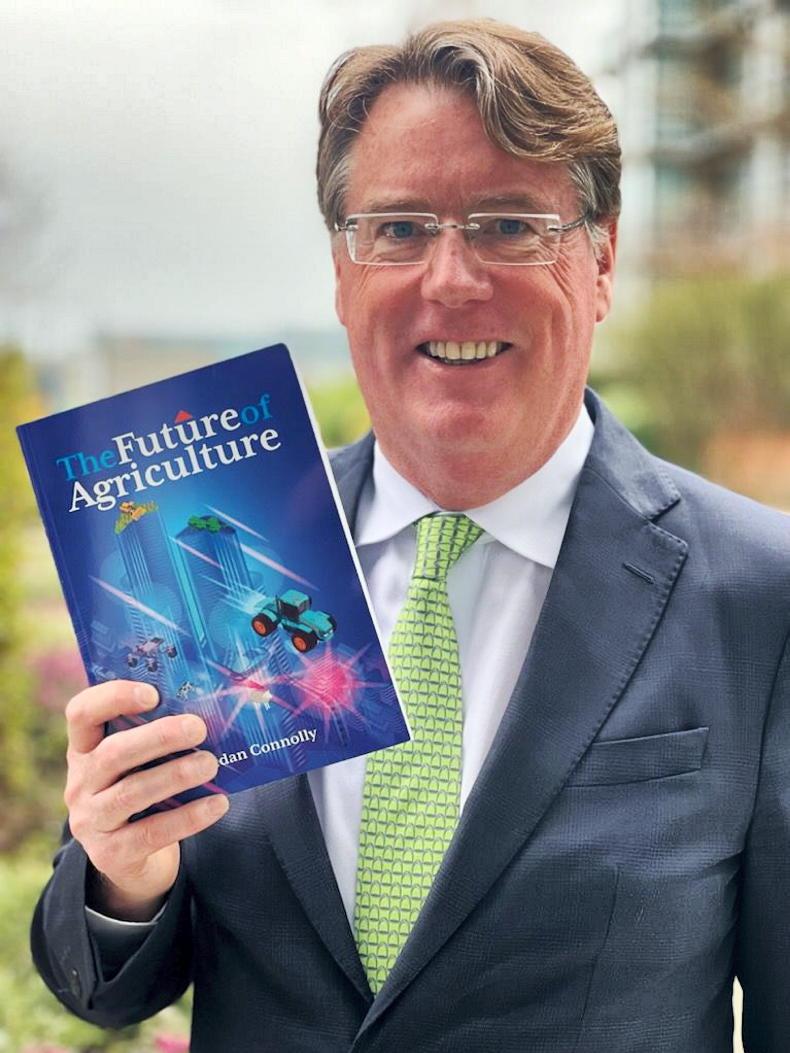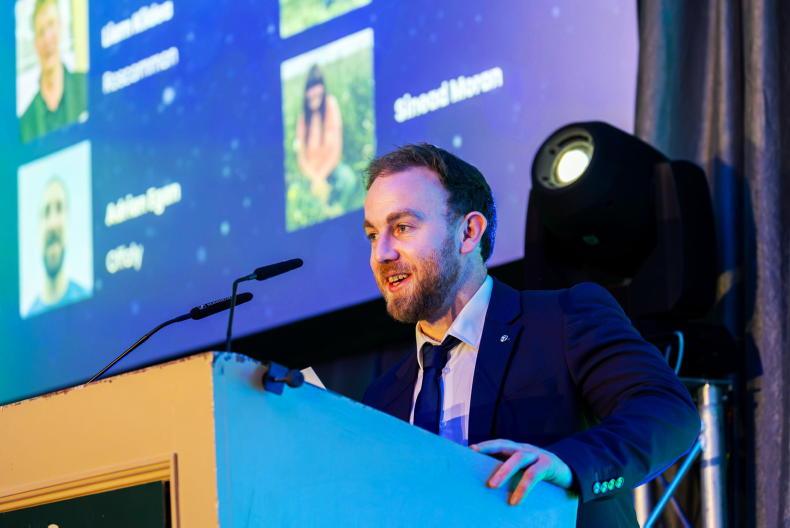It is only in the last five years, the word Agtech has been seen and heard across the sector. The term refers to the use of technology and digital tools to improve various aspects of agriculture. It involves automation, biotechnology, information monitoring and data analysis.
Boosting productivity
Overall, Agtech plays a pivotal role in advancing Ireland’s agricultural sector, promoting sustainability, economic development, and innovation. Innovations help farmers and food producers to increase productivity through advanced machinery, precision farming techniques, which lead to better data-driven decision-making. By improving agricultural efficiency and resilience, Agtech contributes to ensuring a stable food supply for Ireland’s population and strengthens the country’s food security.
An essential component
Launched in 2021, AgTech Ireland is an industry organisation to promote, enhance and advocate for agricultural technologies in Ireland. It aims to connect innovators, investors, regulators, researchers and interested public and promote opportunities and challenges raised within the sector.
Chairperson of the association, Padraig Hennesy tells Irish Country Living about the organisation, the work they are doing and the opportunities for employment.
“I would classify Agtech as anything that makes farmers more productive, and that is a really wide definition. As far as I am concerned its anything from a serrated edge on a shovel to artificial intelligence,” says Padraig.
Farmers can’t work harder, they are already working above the average of other industries so they need to work smarter, according to Padraig. “In order to work smarter, it involves utilizing technologies on farm. Agtech is going to be an essential component of hitting all the sustainability targets, not just environmental, but economic as well,” he says.

Padraig Hennessy, CEO Terra NutriTECH and chairman of AgTech Ireland.
Technology will be one of the main drivers in allowing agriculture to move forward and provide a license to farm effectively. “With the changing dynamics from; consumer sentiment, consumer demand and environmental regulation coming from the EU, change needs to happen on farm and it will be through technologies that that will allow that change to happen,” says Padraig.
For anyone young coming into the sector, Padraig offers the following advice.
“It’s a really exciting industry to get into. We need to continue producing food, it needs to be produced for a growing worldwide population. Technology is what’s going to allow us to do more with less, which is going to be essential for farming going forward. It’s a booming industry that is going to just grow and grow. There’s going to be huge opportunities”.
Global context
Aidan Connolly, President, AgriTech Capital supports new and established companies working at the interface of agriculture and technology across the world.
AgriTech Capital has aided governments, fortune 500 food companies and large agri-businesses on their Agtech strategy. Along with this Aidan has also written a book called, The Future of Agriculture, which is free to download.

Aidan Connolly, President, Agritech Capital with his book The Future of Agriculture.
“Agtech is taking over farms, we’ve got robots milking cows. Most of the better producing cows in countries like Ireland, wear some form of device such as an ear tag, a collar, a foot on their legs, to help us manage the cows better,” says Aidan.
More technologies are coming down the line like the metaverse.“Augmented reality headsets, can help with training and observation. Virtual reality can help for training people on food systems. There’s an awful lot of interest in 3D printing as a way to avoid having to buy the part for your tractor or feeder by printing it yourself.”
While Agtech is growing, most of the innovation is coming from startups where people are living in cities and have limited agricultural knowledge. This as a real opportunity for young people with a farming background.
“Those startups need people who’ve got that farming or rural background, who come with expertise. That’s the big opportunity from a careers perspective,” says Aidan.
There is also a need for future leaders who know how to code, who understand algorithms and how artificial intelligence works.In the future, companies will be looking to hire employees who can advise them in making decisions regaring Agtech as they are investing in private equity. As a result, Aidan advises anyone thinking about what to study in college or wanting to upskill, to look at technology and artificial intelligence.
“You definitely want to learn enough about coding to be able to have an opinion on it and know what should or shouldn’t be invested in. These are things that the majority of leaders don’t know how to do and it’s going to be a real problem,”says Aidan. If you have agricultural knowledge, all the better.
Career Profile

James Greevy, Director of Product at Herdwatch.
James Greevy, Director of Product at Herdwatch
Graduating in 2012, with a BSc in Animal Science, from University College Dublin, James Greevy and his classmates faced employment challenges as it was right in the middle of the recession. James worked on a local dairy farm as a relief milker for nine months, where he found a grá for the business side of farming. This resulted in him going back to college and completing a business management masters in Dublin City University.
James joined Herdwatch in 2015. At the time, they had 1,000 customers. That number has since grown to over 20,000. Working in sales, marketing and product development, James has since moved up the ranks and is now Director of Product.
“We deliver software for farmers. The point of Herdwatch or any other technology is saving time and automating. Its about enabling farmers to do more with less or do more with what they currently have. One of the areas we’re working on a lot is the financial side to help farmers make data driven decisions on the spot,” he says.
James looks after the product road maps and solving customer problems (their customers are primarily farmers).
“That has broadened out, particularly over the last six months as we acquired a veterinary software business after Christmas. I have a team of eight people and we work with the technology side of the business to make sure we are implementing the right solutions for our customers,” says James.
Herdwatch are constantly hiring staff on the sales and support side of the business, particularly agricultural graduates.
“We are looking for people with the right attitude who are prepared to put the work in, you don’t need to have five years’ experience,” says James.
Read more
Finding a balance in agribusiness
CAFRE to host information evening on apprenticeships
It is only in the last five years, the word Agtech has been seen and heard across the sector. The term refers to the use of technology and digital tools to improve various aspects of agriculture. It involves automation, biotechnology, information monitoring and data analysis.
Boosting productivity
Overall, Agtech plays a pivotal role in advancing Ireland’s agricultural sector, promoting sustainability, economic development, and innovation. Innovations help farmers and food producers to increase productivity through advanced machinery, precision farming techniques, which lead to better data-driven decision-making. By improving agricultural efficiency and resilience, Agtech contributes to ensuring a stable food supply for Ireland’s population and strengthens the country’s food security.
An essential component
Launched in 2021, AgTech Ireland is an industry organisation to promote, enhance and advocate for agricultural technologies in Ireland. It aims to connect innovators, investors, regulators, researchers and interested public and promote opportunities and challenges raised within the sector.
Chairperson of the association, Padraig Hennesy tells Irish Country Living about the organisation, the work they are doing and the opportunities for employment.
“I would classify Agtech as anything that makes farmers more productive, and that is a really wide definition. As far as I am concerned its anything from a serrated edge on a shovel to artificial intelligence,” says Padraig.
Farmers can’t work harder, they are already working above the average of other industries so they need to work smarter, according to Padraig. “In order to work smarter, it involves utilizing technologies on farm. Agtech is going to be an essential component of hitting all the sustainability targets, not just environmental, but economic as well,” he says.

Padraig Hennessy, CEO Terra NutriTECH and chairman of AgTech Ireland.
Technology will be one of the main drivers in allowing agriculture to move forward and provide a license to farm effectively. “With the changing dynamics from; consumer sentiment, consumer demand and environmental regulation coming from the EU, change needs to happen on farm and it will be through technologies that that will allow that change to happen,” says Padraig.
For anyone young coming into the sector, Padraig offers the following advice.
“It’s a really exciting industry to get into. We need to continue producing food, it needs to be produced for a growing worldwide population. Technology is what’s going to allow us to do more with less, which is going to be essential for farming going forward. It’s a booming industry that is going to just grow and grow. There’s going to be huge opportunities”.
Global context
Aidan Connolly, President, AgriTech Capital supports new and established companies working at the interface of agriculture and technology across the world.
AgriTech Capital has aided governments, fortune 500 food companies and large agri-businesses on their Agtech strategy. Along with this Aidan has also written a book called, The Future of Agriculture, which is free to download.

Aidan Connolly, President, Agritech Capital with his book The Future of Agriculture.
“Agtech is taking over farms, we’ve got robots milking cows. Most of the better producing cows in countries like Ireland, wear some form of device such as an ear tag, a collar, a foot on their legs, to help us manage the cows better,” says Aidan.
More technologies are coming down the line like the metaverse.“Augmented reality headsets, can help with training and observation. Virtual reality can help for training people on food systems. There’s an awful lot of interest in 3D printing as a way to avoid having to buy the part for your tractor or feeder by printing it yourself.”
While Agtech is growing, most of the innovation is coming from startups where people are living in cities and have limited agricultural knowledge. This as a real opportunity for young people with a farming background.
“Those startups need people who’ve got that farming or rural background, who come with expertise. That’s the big opportunity from a careers perspective,” says Aidan.
There is also a need for future leaders who know how to code, who understand algorithms and how artificial intelligence works.In the future, companies will be looking to hire employees who can advise them in making decisions regaring Agtech as they are investing in private equity. As a result, Aidan advises anyone thinking about what to study in college or wanting to upskill, to look at technology and artificial intelligence.
“You definitely want to learn enough about coding to be able to have an opinion on it and know what should or shouldn’t be invested in. These are things that the majority of leaders don’t know how to do and it’s going to be a real problem,”says Aidan. If you have agricultural knowledge, all the better.
Career Profile

James Greevy, Director of Product at Herdwatch.
James Greevy, Director of Product at Herdwatch
Graduating in 2012, with a BSc in Animal Science, from University College Dublin, James Greevy and his classmates faced employment challenges as it was right in the middle of the recession. James worked on a local dairy farm as a relief milker for nine months, where he found a grá for the business side of farming. This resulted in him going back to college and completing a business management masters in Dublin City University.
James joined Herdwatch in 2015. At the time, they had 1,000 customers. That number has since grown to over 20,000. Working in sales, marketing and product development, James has since moved up the ranks and is now Director of Product.
“We deliver software for farmers. The point of Herdwatch or any other technology is saving time and automating. Its about enabling farmers to do more with less or do more with what they currently have. One of the areas we’re working on a lot is the financial side to help farmers make data driven decisions on the spot,” he says.
James looks after the product road maps and solving customer problems (their customers are primarily farmers).
“That has broadened out, particularly over the last six months as we acquired a veterinary software business after Christmas. I have a team of eight people and we work with the technology side of the business to make sure we are implementing the right solutions for our customers,” says James.
Herdwatch are constantly hiring staff on the sales and support side of the business, particularly agricultural graduates.
“We are looking for people with the right attitude who are prepared to put the work in, you don’t need to have five years’ experience,” says James.
Read more
Finding a balance in agribusiness
CAFRE to host information evening on apprenticeships









 This is a subscriber-only article
This is a subscriber-only article










SHARING OPTIONS: